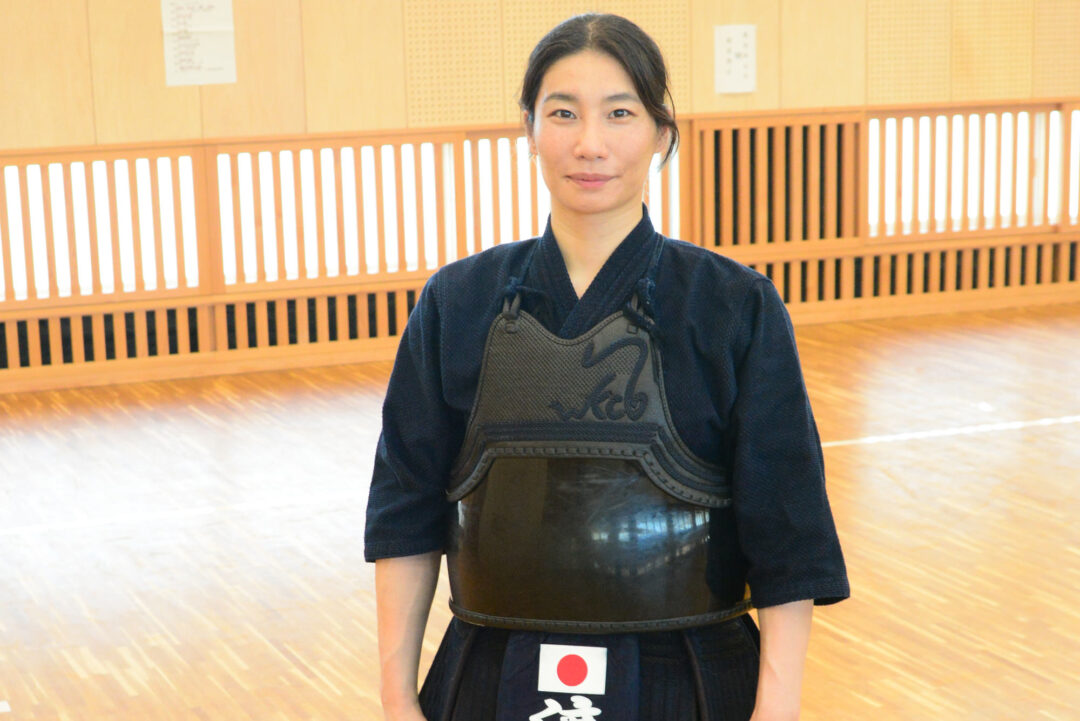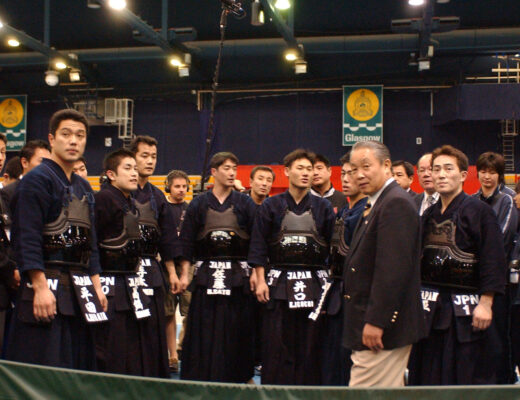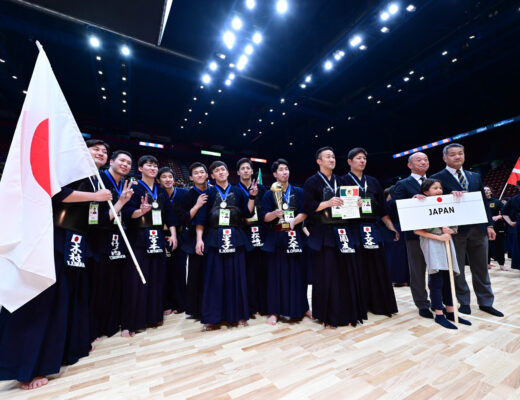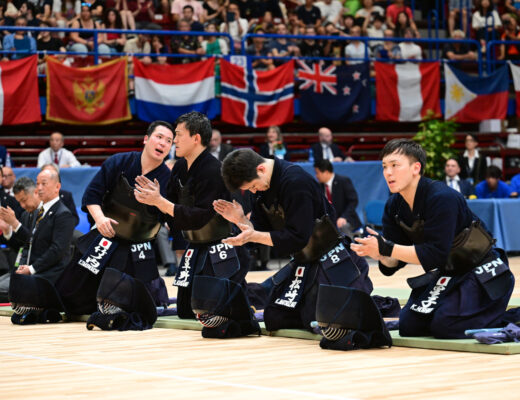2024.10 KENDOJIDAI
Composition: Yanagida Naoko
Translation: Hoshino Maki
“The responsibility of being captain” — perhaps that was what drove Watanabe forward through the World Kendo Championships (WKC). Only those who have stood in the arena of the WKC can truly understand the weight of that pressure — so what is it really like?
Watanabe Tai
Born in 1992 in Koshi City, Kumamoto Prefecture. A graduate of Aso High School (now Aso Chuo High School) and Nippon Sport Science University. Currently serves with the Kumamoto Prefectural Police. Her titles include one victory and two third-place finishes at the All Japan Women’s Kendo Championship, an individual title at the All Japan Police Kendo Championship, and a runner-up finish at the All Japan Interprefecture Ladies Kendo Championship (AJILKC). In July 2024, she served as Taisho for the women’s team at the 19th WKC, leading Japan to her third team title. She currently works as an instructor at the Kumamoto Prefectural Police School. Kendo 6th dan.
Stepping onto the World Stage with Perfect Preparation
“That match may have been a dream” — That’s how Watanabe reflects on the whirlwind of the past three years—a blur of intense focus and unrelenting effort. Now, a month after the tournament, a quiet mix of emotions stirs within her: a touch of loneliness, and a wave of relief.
“Recently, things have finally settled down,” says Watanabe. “When I returned, the students and staff of the Kumamoto Prefectural Police School, where I work, welcomed me back at the main gate. I was grateful to be able to report the good result. Right after that, I took part in the AJILKC and the Kyushu Regional Police Bureau Kendo Tournament, so it wasn’t until the end of July that I finally had a moment to catch my breath.”
Even in the lead-up to the WKC, Watanabe, who serves as an instructor at the police school, still had classes to lecture. She squeezed in her own training between duties and remembers her departure for Italy being especially hectic.
“I was only able to make it to the day of the tournament thanks to the support of those around me. Looking back, it all went by in the blink of an eye. That said, during the repeated training camps, the wait until the tournament felt incredibly long… I think that’s because, even though I was looking forward to the matches, part of me was also scared and anxious about stepping into the competition.”
Over the past year, intensive training camps were held once a month. Each time, the team came together to endure the rigorous practices. Though the journey was tough, every effort was made with one unwavering purpose—to win the team title at the WKC.
On the day of the tournament, ready to give everything they had, the Japanese women’s team delivered a spectacular performance. In the preliminary league, they secured overwhelming 5–0 victories against Turkey, France, and Germany. In the knockout stage, they continued their dominance with 5–0 wins over Hungary, Italy, and Australia, setting the stage for a final match against Korea.
Up until the final, her younger teammates had secured victories across the board, never once having to pass the baton to their Taisho—Watanabe. However, the match against Korea was a different story. The Korean team had thoroughly analyzed the Japanese squad in their pursuit of the championship.
“My opponent, Cha, was the same competitor I faced at the 16th WKC in Japan. I could clearly sense how much preparation and training she had put in for this very day.”
In her past two appearances at the 16th and 17th WKCs, Watanabe had never experienced a decisive victory over Korea. Heading into the match, there was no telling how things would unfold.
However, Japan’s lineup was rock-solid. With Matsumoto Chika as Senpo and Takahashi Moeko as Jiho—both seasoned members of the Kanagawa Prefectural Police and WKC veterans—Matsumoto struck first with a clean Men, while Takahashi followed with back-to-back Men and Kote to secure a two-point win. With Japan on the brink of victory, Takenaka Miho (Tochigi Sports Association) delivered a composed performance in the Chuken-sen, holding her ground for a draw and preserving Japan’s 2–0 lead into the Fukusho-sen. There, Senoo Maika (Fukuoka Prefectural Police), competing in her second WKC, showcased overwhelming strength, winning by two points. On that day, the Japanese women’s team secured the championship without once having to rely on their Taisho, Watanabe.
“They’re incredible teammates,” Watanabe said. “I was able to watch them with complete confidence. I’ve never experienced such a decisive win before.”
Nothing is certain until it’s over. Watanabe fought through to the very end with a thoroughly cautious and vigilant mindset.
“Both former manager Miyazaki Masahiro Sensei and current manager Takenaka Kentaro Sensei often reminded us, ‘Nothing is certain until it’s over.’ I believe that preparing for the WKC with that mindset, together as a team, made all the difference”
In the Taisho-sen, Watanabe stepped onto the court with joy and gratitude. With sharp, decisive strikes—a Kote followed by a Men—she secured a two-point victory, fully showcasing her ability. The moment they were rewarded with the championship, she felt a deep sense of relief and happiness.
Leading with Discipline to Unite the Team
The rest of this article is only available for Kendo Jidai International subscribers!





